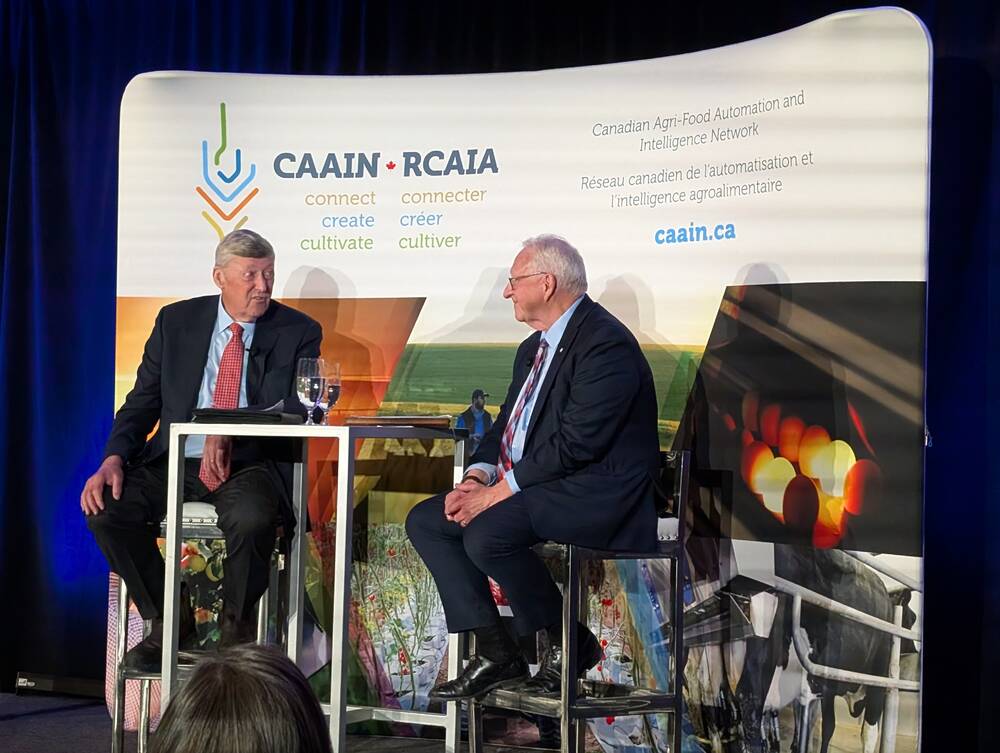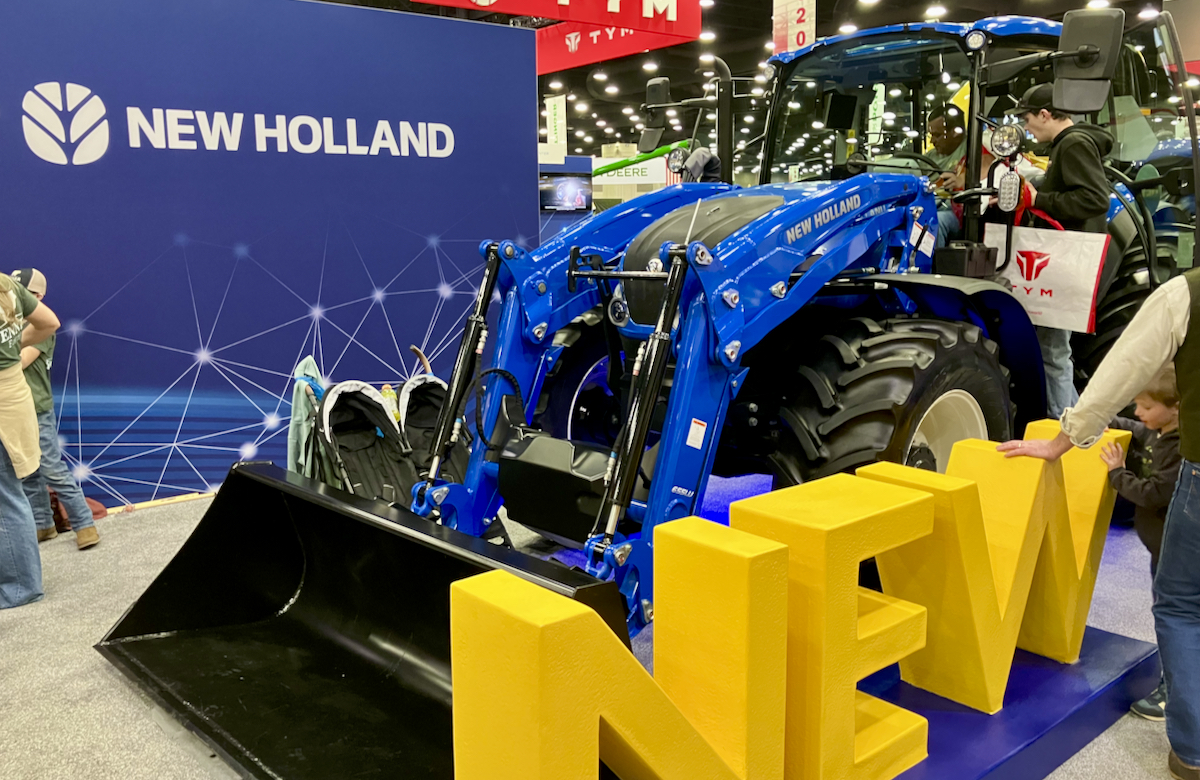Former trade negotiator says Canada must find new markets

Canada must prioritize international relationships and ensure cooperation between government, industry and agriculture in the face of United States tariffs, says a former lead trade negotiator.
John Weekes’ resumé includes time as Canada’s ambassador to the General Agreement on Tariffs and Trade, a lead role in Canada’s NAFTA negotiating team and a current membership on the Expert Group on Canada-U.S. Relations. He offered thoughts on Canadian agri-food’s way forward during a fireside chat with former AdFarm CEO Kim McConnell hosted by the Canadian Agri-Food Automation and Intelligence Network (CAAIN).
Read Also


John Deere offers upgrades for planters, New Holland rolls out latest PowerStar tractor at National Farm Machinery Show
For day two at the National Farm Machinery Show, we paid a visit to the John Deere booth who announced…
Weekes began by stressing how important international cooperation is to beneficial trade agreements, drawing on his experience with the original NAFTA negotiations.
“There are a number of things that go into a trade agreement, but I don’t think there’s anything more important than having good relationships,” he said. “In NAFTA, one of the reasons we were able to do this so quickly was the three leaders of the three countries involved, Brian Mulroney in Canada, George H.W. Bush in the United States and President (Carlos) Salinas in Mexico, were all committed to this at the highest level.”
This level of co-ordination, Weekes said, is not present with U.S. President Donald Trump. “I think it’s very hard to tell exactly what it is his objectives are.”
He added Trump’s trade priorities will likely become clearer once the commissioned “America First Trade Policy” report comes back to his desk in early April.
In the face of an uncertain situation with our closest trading partner, Weekes suggested it could be time to consider other markets.
“We’ve talked about trade diversification, but I don’t think we get to trade diversification by going and talking with other countries about how we can make our trade agreements with them work more effectively,” he said. “An important part of it is also, how do we make the Canadian economy more interesting for partners other than the United States in terms of how we trade with them?”
He said Canada has previously failed to act in similar situations, such as when Germany expressed interest in buying Canadian natural gas following Putin’s invasion of Ukraine.
McConnell brought up the idea that agriculture is often the sector that “gets hit” in trade disputes. Weekes said this is because other countries know attacking agriculture will draw national attention.
“Agriculture is a difficult subject for trade negotiation,” Weekes said. “This is why trade barriers in agriculture … tend to remain higher.
“This really means that we need more trade negotiations in agriculture, not fewer.”
McConnell asked Weekes how industry can help government get better at negotiations. Weekes said communications between industry, government and agriculture are important to keep everyone on the same page.
“It’s kind of difficult for somebody in the farming community to sort of understand what the dynamic of a trade negotiation is, and how you go about trying to extract concessions from other people.”
“These countries are going to need a lot of a lot of supplies,” he added, “and Canada is one of the few countries that still has the capacity to increase exports and production.”
McConnell added the government should champion the reputation of Canadian food in trade negotiations.
“Shouldn’t we really be saying to the world, ‘hey, world, anybody out there want food? We got food,” McConnell said. “Anybody out there that wants low environmental footprint food? … Hey, give us a call. We’re interested.’ I think that’s a message that our government needs to champion a little more.”
To finish off the conversation, McConnell asked Weekes what his greatest fears are for the future.
“The thing that strikes me the most is still the possibility of accidental nuclear war,” he said.
“I think number two in the list I (would) put as pandemics. Because with the deterioration of the environment, I think the risk of a much more serious pandemic is probably just a matter of time.
”The third one would be a deterioration of the international system of economic co-operation and trade co-operation,” he said. “And frankly, I think the third one collapsing would make the first two more likely.”
The message Weekes left with the crowd, however, was one of hope and co-operation.
“I think you all need to step up and play a part in this,” he said to the packed room at the Westin hotel in Ottawa.
“If you learn one thing from our altercation with the Americans at the present time, we need to do more about standing up on our own two feet. We can’t just rely on them as a market partner. We’re going to have to do things to strengthen our own economy and potentially prepare ourselves for looking elsewhere in the world.”
Source: Farmtario.com

